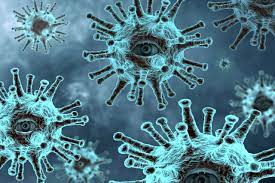Why Smell And Taste Change in Covid: A Recent Study
The most frequent side effect of the Covid infection was loss of taste and smell. According to a recent research, the SARS-CoV-2 virus attacked sensory neurons, leading victims to lose their sense of taste and smell.
The peripheral nervous system, a network of nerves that allows the brain and the rest of the body to communicate, was severely impacted by the virus. The peripheral nerve system’s sensory neurons are crucial for the human sensations of taste and smell.
Early research revealed that the virus could not or seldom infect neurons. However, a group from the Whitehead Institute for Biomedical Research in the US has shown that SARS-CoV-2 may infect sensory neurons, changing the gene expression of the cells.
These discoveries might provide the groundwork for the development of new therapeutics by helping to clarify how the virus manifests itself in the peripheral nervous system.
“There is clearly a clinical effect of SARS-CoV-2 infection on sensory neurons, such as on smell and taste, and we did not know what might be the cause,” stated Rudolf Jaenisch, a founding member of the Whitehead Institute.
“Knowing that the virus can infect and probably alter the function of the cells gives us a hint of what the cause might be,” said Jaenisch, who is also a professor of biology at the Massachusetts Institute of Technology.
In the work, which was printed in the journal iScience, the group developed in vitro human sensory neurons from induced pluripotent stem cells. By examining the expression of crucial genes particular to that cell type, scientists were able to determine that the cells had differentiated into sensory neurons.
The next step was to determine if the sensory neurons had the gene ACE2, which codes for the protein that SARS-CoV-2 utilizes to enter human cells. As a preliminary sign that sensory neurons may be infected, they discovered that the sensory neurons indeed express ACE2 at a level equivalent to other cell types known to be infected by the virus.
The sensory neurons were then treated to three SARS-CoV-2 strains: the original WA1/2020 strain, the Omicron and Delta strains that increased Covid infection, and the three strains.
When the RNA from the sensory neurons was sequenced, the researchers discovered that all three strains of the virus had infected some of the sensory neurons.
Omicron infected the fewest cells in the shortest amount of time, indicating that it infects sensory neurons more slowly than the other strains. This discovery may assist to explain why Omicron infection causes less loss of taste and smell than the earlier strains did, but further studies are required to establish a causal relationship.







